INQAAHE 14TH BIENNIAL FORUM 2024
Transforming Society: Social Responsibility Through Quality Assurance Of Tertiary Education
đ June 10 â June 12, 2024
đ Bucharest, Romania
đïž National University of Science and Technology Politehnica Bucharest
Hosted by the Romanian Agency for Quality Assurance in Higher Education (ARACIS)
000 : Day(s)
00:Â Hour(s)
00:Â Minute(s)
00:Â Second(s)
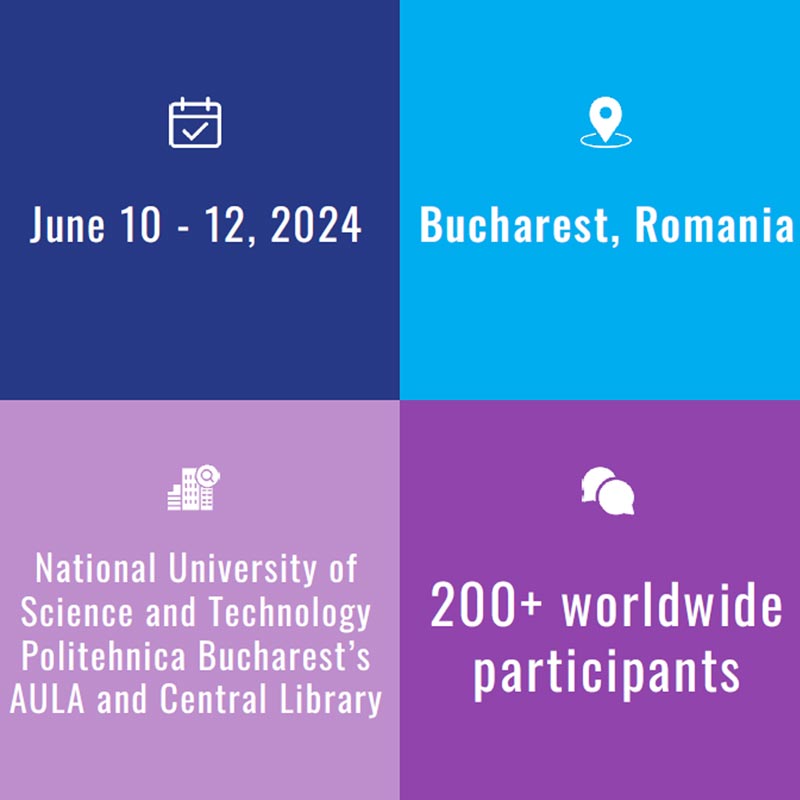
INQAAHE 14TH BIENNIAL FORUM 2024
Transforming Society: Social Responsibility through Quality Assurance of Tertiary Education
Hosted by the Romanian Agency for Quality Assurance in Higher Education (ARACIS)

CALL FOR PAPERS
We are looking for participants that are willing to discuss, collaborate and spark ideas through insightful and shared experiences.
The proposals should aim to equip the audience with a holistic understanding of how tertiary education can shape a better future for individuals and society. The deadline for submissions has been extended to January 31, 2024. More information can be found here.
PROGRAMME
Transforming Society: Social Responsibility through
Quality Assurance of Tertiary Education
10th of June
11th of June
12th of June
13th of June
REGISTRATION
Forum
550 USD
for INQAAHE members
580 USD for non-members
2 days of forum + social day
Panel discussions, roundtables and keynote sessions
Networking opportunities
Welcome cocktail, Gala dinner, Lunch & Coffee breaks
Regional networks meeting, General Assembly meeting
Forum + 1 WORKSHOP
650 USD
for INQAAHE members
710 USD for non-members
2 days of forum + social day
Panel discussions, roundtables and keynote sessions
Welcome cocktail, Gala dinner, Lunch & Coffee breaks
Networking opportunities
Regional networks meeting, General Assembly meeting
1 PRE-FORUM WORKSHOP
Forum + 2 WORKSHOPS
700 USD
for INQAAHE members
760 USD for non-members
2 days of forum + social day
Panel discussions, roundtables and keynote sessions
Welcome cocktail, Gala dinner, Lunch & Coffee breaks
Networking opportunities
Regional networks meeting, General Assembly meeting
2 PRE-FORUM WORKSHOPS
SPEAKERS
DAY 1 | 10th of June
WORKSHOP 1 â Skill up with the ISGs: a hands-on workshop to make innovation an everyday habit

Dr. Susanna Karakhanyan
Dr. Susanna Karakhanyan is employed by the Abu Dhabi Government as Higher Education Policy & Regulation Director at the Abu Dhabi Department of Education and Knowledge in the United Arab Emirates. She consults governments on policymaking, governance as well as external and internal QA systems in a diversity of contexts globally. Dr. Karakhanyanâs expertise evolves around tertiary education in general and policymaking, governance and quality assurance in particular. She authors and delivers capacity building events and external reviews of governance structures, legal frameworks and QA systems worldwide. She has authored, initiated and has been implementing a variety of projects under the auspices of the Council of Europe, UNESCO, the World Bank, the Asian Development Bank, Open Society Institute, IREX, to name some. All the projects address higher education reforms in general and diversity of aspects in legal frameworks, governance and quality assurance, in particular (e.g. Tajikistan, Mongolia, Kazakhstan, Vietnam, Indonesia, Kyrgyzstan).

Dr. Anna Prades
Dr. Anna Prades sits in the Board of Directors of the International Network for Quality Assurance in Higher Education (INQAAHE) as Treasurer, since October 2021. She is Head of Internationalisation and Knowledge Generation Department of AQU Catalunya, where she has been working since 2001. She has a degree in Psychology (1996) and a PhD in Pedagogy (2005) from the University of Barcelona. During the last years, her main endeavour in AQU Catalunya has been the building up of a system of evidences for quality assurance (official descriptors, academic indicators, assessment results, graduates and employer surveys) and the integration of these indicators in a platform for public information in order to generate trust in the Catalan Higher Education System (EUC studies).

Dr. Ariana De Vincenzi
Dr. Ariana De Vincenzi holds a PhD in Education from the University of San AndrĂ©s, Argentina, as well as a bachelorâs degree in Educational Sciences from the Argentine Catholic University. Currently, she serves as the Academic Vice-rector at the Universidad Abierta Interamericana of Argentina. She holds positions as a consultant for international universities and advises public organizations. From 2016 to 2023, she served as the Academic Secretary for the Network of Associations of Private Latin American and Caribbean Universities (REALCUP). In 2023, she was appointed as a Director of the Board of the International Network for Quality Assurance Agencies in Higher Education (INQAAHE).
WORKSHOP 2 & WORKSHOP 3 â Comprehensive Quality Assurance Workshop: Mastering Principles and Techniques of Quality Assurance in Higher Education, A Practical Workshop: Basis & Methodology

Dr. Mary Catharine Lennon
Mary Catharine Lennon, PhD, has an academic and professional background in international and comparative higher education research and policy development in areas including system design, accountability, quality assurance, and evaluation. She is the Head of Research, International and Special Projects at the Postsecondary Education Quality Assessment Board of Ontario (PEQAB), a two-term Board Director of the International Network of Quality Assurance in Higher Education (INQAAHE) and chairs the Marjorie Lenn Peace Centre for Research and Capacity Building in Quality Assurance. Dr. Lennon also holds an appointment with the Canadian and International Higher Education Centre at OISE/University of Toronto, where she also lectures on Governance in Higher Education.

Dr. Fabrizio Trifiro
Fabrizio is an international expert in quality assurance and international education, with specific expertise in the quality assurance and recognition of transnational education. He is a member of the Accreditation Committee of the British Accreditation Council, and an Independent Governor of Wrexham University in Wales.
Fabrizio has covered, over the past 15 years, leading roles with the agency managing the UK qualification recognition function (UK ENIC) and the UK Quality Assurance Agency for Higher Education.
He has acted as a reviewer and consultant for a number of international quality assurance bodies and international agencies, including most recently the Office for Students (OfS) in England, Quality and Qualifications Ireland (QQI), the Granada National Accreditation Board (GNAB), UNESCO, and the British Council.
WORKSHOP 4 â A force for good? Exploring critical approaches to quality assurance in the Global South
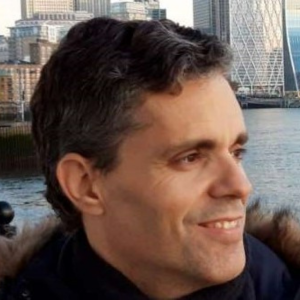
Eduardo Ramos
Eduardo is responsible for the portfolio of QAAâs international services, including international membership services, accreditation, consultancy and QE-TNE (quality evaluation and enhancement of UK transnational education). He leads on international partnership building, ensuring QAA continues to work with governments, agencies and institutions globally to benefit UK higher education and its international reputation.
Prior to this role, Eduardo worked in education internationalisation for Universities UK, St Georgeâs Hospital Medical School, Audencia Business School, and ICEX-Invest in Spain. He holds an LLB from the Autonomous University of Madrid, an MBA from University College London and is fluent in English, Spanish and French.
WORKSHOP 5 â Quality Assurance as a Catalyst for Refugee and Displaced Student Integration in Tertiary Education

Amir Radfar
Amir Radfar serves as a TVET Officer at the United Nations High Commissioner for Refugees (UNHCR), where he is dedicated to broadening access to quality higher vocational education for refugees. With over 20 years of experience in the field of vocational training, he specializes in integrating refugees and displaced persons into TVET systems, ensuring they receive the education and skills necessary for employment. Prior to his role at UNHCR, Radfar worked with TĂV Rheinland in Southeast Asia on TVET quality assurance and conducted TVET market analyses for iMOVE(German international Marketing of Vocational Education). His career is also marked by significant contributions as an adviser, monitoring and evaluation consultant and project coordinator for well-known international agencies including UNESCO, UNEVOC, UNEP, UNOHCHR, UNESCAP, and GIZ, underscoring his broad expertise in educational development and refugee inclusion globally.

Fabrice HĂ©nard
Mr. Fabrice HENARD is the CEO of INQAAHE. He is a global expert in tertiary education and quality assurance as an evaluator, trainer, facilitator or policy advisor. He brings to INQAAHE the experience he gained working for The French Evaluation Agency for Research and Higher Education and the OECD Tertiary Education Program. As an expert, he has carried out more than 100 assignments for Unesco, World Bank, OECD, European Union, tertiary education institutions, ministries, university networks in some 45 countries and has chaired several expert panels in Europe and the Mena region. Since 2013, he is the Secretary General of the Accreditation Committee of Luxembourg, education expert for the European Commission and he was a member of the Albanian Accreditation Committee 2017-2022. He leads the modules on Education Policy in the South at Sciences Po Paris, Master in International Development.
DAY 2 | 11th of June
Session 1 keynote â Breaking barriers: bridging the gap to quality education for all

Prof. Olusola Bandele, OYEWOLE
Professor Olusola Oyewole is the Secretary-General of the Association of African Universities, Accra, Ghana. He was the Vice-Chancellor of the Federal University of Agriculture, Abeokuta from May 2012 to May 2017. He has over thirty-eight yearsâ experience in the African Higher education system. He has served as a Senior Expert at the African Union Commission in Ethiopia, Addis-Ababa. Prof. Oyewole was the Coordinator of the British Government sponsored project on the âMobilization of Regional Initiatives for the revitalization of higher education in Africaâ, at the Association of African Universities (AAU), Accra, Ghana, from 2007 to 2009.He has also served as the Project Officer of the World Bank project on âQuality Assurance for African Higher Education systemsâ at the AAU (2006 â 2009). Olusola Oyewole interests in higher education include Quality assurance, Leadership and Management, Research, Development, and Innovations, among others.
Roundtable â Quality Assurance for Digital Education and Micro-credentials

Mag. Diane Freiberger, MBA
Diane Freiberger has been involved in higher education for more than 25 years. She started as a lecturer at the Catholic Academy for Social Work in Munich. After that, she took a brief detour into business and was a PR manager for six years.⯠In 2006, she returned to the field of university management.âŻâŻBefore she took over the management of FIBAA in 2020, Diane Freiberger was Managing Director of the Business School at the FH Kufstein Tirol University of Applied Sciences in Austria and Vice Rector at the same university for five years. In the course of all these activities, Diane Freiberger has been involved in quality assurance issues, especially in the area of digital transformation of teaching and learning. In recent years, she has been involved in national and international study projects and conferences on and has published about these topics.

Michael Stephan, M.A.
Michael Stephan has been working for a publishing company for several years, among other activities researching, co-writing and co-editing guides about study programmes in business, economics, and engineering. Before joining FIBAA in 2021, he has been working for six years for an international corporate HR quality assurance enterprise. At FIBAA, Michael Stephan has been conducting national as well as international accreditation and certification projects as a project manager and took over the position as division manager certifications in 2022. In this task, he is in charge of the FIBAA quality seals âfor certified continuing education coursesâ and âExcellence in Digital EducationâÂź.
Roundtable â Sharing ideas and practices to enhance equity in Tertiary Education

Dr. Anna Prades
Dr. Anna Prades sits in the Board of Directors of the International Network for Quality Assurance in Higher Education (INQAAHE) as Treasurer, since October 2021. She is Head of Internationalisation and Knowledge Generation Department of AQU Catalunya, where she has been working since 2001. She has a degree in Psychology (1996) and a PhD in Pedagogy (2005) from the University of Barcelona. During the last years, her main endeavour in AQU Catalunya has been the building up of a system of evidences for quality assurance (official descriptors, academic indicators, assessment results, graduates and employer surveys) and the integration of these indicators in a platform for public information in order to generate trust in the Catalan Higher Education System (EUC studies).

Dr. Eva FernĂĄndez de Labastida
Dr. Eva FernĂĄndez de Labastida is the Internationalisation and projects manager of Unibasq â the Agency for Quality of the Basque University System (since 2009). In the beginnings of her work for Unibasq she was responsible for the coordination, organization and implementation of the accreditation procedures and institutional audits in the universities of the Basque University System, including training of peers. In addition, nowadays, she is in charge of the international activities of Unibasq in different networks, as INQAAHE, ENQA (European Association for Quality Assurance in Higher Education) and ECA (European Consortium for Accreditation in Higher Education), mainly in topics related with joint programmes, academic recognition, employability and internationalisation. Since June 2017, she chairs the working group regarding recognition and joint programmes of ECA and since June 2018, she has been a member of the Board of ECA, being appointed as chair in June 2023.
Roundtable â SWITEX (Swiss Index for Teaching Excellence) â A hands-on approach to improving didactic performance

Prof. Dr. Michael Derrer
Prof. Dr. Michael Derrer, a Swiss economic sociologist, and didactics expert, has dedicated his career to management, consultancy, and teaching, with an international focus. His main professional engagement is with HSLU (Lucerne University of Applied Sciences and Arts). He conducted large research projects for renowned customers. He authored the SWITEX (Swiss Index of Teaching Excellence), a practical tool promoting a modern activating didactic approach. Recently, he has been commissioned to provide expertise on dual professional education to Romania, based on the Swiss model. Michael Derrer is fluent in 10 European languages.
Roundtable â How transnational education can serve to widen access to quality international education

Dr. Fabrizio Trifiro
Fabrizio is an international expert in quality assurance and international education, with specific expertise in the quality assurance and recognition of transnational education. He is a member of the Accreditation Committee of the British Accreditation Council, and an Independent Governor of Wrexham University in Wales.
Fabrizio has covered, over the past 15 years, leading roles with the agency managing the UK qualification recognition function (UK ENIC) and the UK Quality Assurance Agency for Higher Education.
He has acted as a reviewer and consultant for a number of international quality assurance bodies and international agencies, including most recently the Office for Students (OfS) in England, Quality and Qualifications Ireland (QQI), the Granada National Accreditation Board (GNAB), UNESCO, and the British Council.
Roundtable â Incorporating Criteria for Social Inclusion in the Framework of ESG

Prof. Dr Siyka Chavdarova â Kostova
Prof. Siyka Chavdarova â Kostova is a lecturer at Sofia University âSt. Kliment Ohridskiâ in the field of pedagogy, teacher training, pedagogical and social work in multicultural environment, inclusive education. She trains teachers and social workers in some bachelorâs and masterâs programs and she was a supervisor of some successfully defended doctoral students in the field of intercultural interactions in educational environment and the development of students through educational interactions. She is currently the supervisor of doctoral students in the field of social work with refugees as a head of Master program âSocial work with refugees and migrantsâ. Prof. Siyka Chavdarova â Kostova has many years of experience as a participant in accreditation procedures of higher education institutions â program and institutional accreditation, and in the last few years as the chairperson of the Standing Committee on Educational Sciences and Social Activities to the National Evaluation and Accreditation Agency, Bulgaria.

Dyani Kurulenko
Dyani Kurulenko is a Political Science graduate from Sofia University âSt. Kliment Ohridskiâ, with a Masterâs degree in Political Sociology. He has been a part of the NEAA team since 2022. He oversees the Agencyâs International Cooperation, including maintaining the relations of NEAA with international HEQA bodies and associations, and international Higher Education Institutions. His contributions include preparation for the Agency Review process carried out by ENQA during 2022-2023, which resulted in renewal of NEAAâs membership in ENQA and registration in EQAR, as well as facilitation of the drafting and signing of several memorandums of cooperation between NEAA and HEQA agencies from Kazakhstan, North Macedonia, the United Kingdom. He is also currently working on the Social Inclusion, Tolerance, Acceptance and Realization for all sTudents (START) project, undertaken by an international consortium between Bulgaria and Romania, and funded by ERASMUS+. Dyani speaks Bulgarian, English and Russian languages.
Session 2 keynote â Embracing relevance: designing curricula for societal impact

Dr. Juliette E. Torabian
Senior international specialist in Intâl development & education, Juliette holds a postdoctoral degree in sociology of education and a doctorate in comparative higher education. Her research and keynote speeches focus on higher education policy and quality, social justice, educational equality, and sustainability in higher education. Juliette is also on the advisory board of Oxford Encyclopedia of Education and a lecturer at University of Fribourg.
Roundtable â Harmonizing Heterogeneity: Ensuring Quality in Interdisciplinary Programs Offered through a âMultiversityâ Framework

Dr. Samah Gamar
Dr. Samah Gamar is a seasoned higher education professional with extensive experience in education policy, program development, monitoring and assessment, and higher education quality assurance. Her career has spanned the tertiary education sector from technical and vocational education and training (TVET) to postgraduate-level studies.
She is currently the Director of Academic Affairs at Qatar Foundation, a role in which she is dedicated to enhancing comprehensive academic excellence across the seven partner universities within Education City, along with leading flagship initiatives that strive to pioneer interdisciplinary approaches, innovative pedagogical and practical evidence-based frameworks, and increased student-centricity and mobility.
Roundtable â Curricular Mapping for Societal Impact: A Strategic Framework for Curriculum Design

Prof. Eglantina Hysa
Eglantina Hysa, Professor, is a senior researcher of Development Economics and works as an independent researcher in Brussels. Her research is focused on development economics, social aspects, and quality in higher education institutions. She is the author of many scientific publications including book chapters and technical reports, published in leading international journals and publishing houses, including Integration of Education, Sustainability, Journal of Applied Economics, and Routledge. She is included as Bologna System expert for higher education in many EU projects. Moreover, professor Eglantina Hysa was engaged in numerous and foremost contractual positions, such as: Expert Evaluator, Horizon 2020, MSCA Program, Research Executive Agency of European Commission; Expert Evaluator, Erasmus+ Programme and/or the European Solidarity Corps, European Union Program Agency (EUPA); Bologna Expert and International Expert in many European Accreditation Agencies for Higher Education; and International Consultant, Center for Higher Education Research and Academic Development, UK.
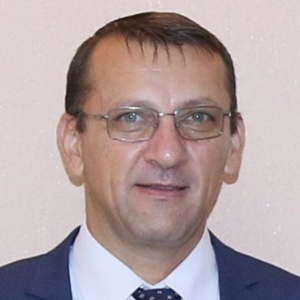
Prof. Marius Gabriel Petrescu
Marius Gabriel Petrescu currently holds the position of PhD Professor and PhD advisor at Faculty of Mechanical and Electrical Engineering, Petroleum-Gas University of Ploiesti (Romania). Prof. PhD Petrescu is Director of the Doctoral School of the Petroleum-Gas University of Ploiesti. He is also General Secretary of theâŻRomanian Agency for Quality Assurance in Higher Education Council. His work experience derives from and includes: teaching courses and seminaries; research activities; participating in scientific conferences. Regarding research results, these are represented by publishing over 30 books and over 130 articles in journals, bulletins and proceedings of national and international conferences (including ISI listed, Q1, Q2). He was member of organizing / scientific committees of over 30 scientific events; president or member, in over 25 commissions for completing studies and, as a member, in over 60 commissions for doctoral examination or defense of doctoral theses.

Prof. Mirela Panait
Mirela Panait holds the position of PhD Professor at Faculty of Economic Sciences, Petroleum-Gas University of Ploiesti (Romania). Her work experience derives from and includes: teaching courses and seminaries; research activities; participating in scientific conferences. Regarding research results, these are represented by publishing seven books and over 100 scientific papers in the field of interest: energy transition, international finance, and sustainable development. She has published articles in leading international journals (Energy Policy, Land Use Policy, Utilities Policy, Energies, Resources Policy, etc.). On the editorial level, her activity is intense, being editor, associate editor, guest editor or reviewer for prestigious journals within Elsevier, Emerald, Wiley, IGI Global groups. She participated in over 40 international scientific conferences and she is member of scientific committee for international conferences (IBIMA; ICEBM, CIDE; FEMIB; EMCEI, ICAS etc.).
Roundtable â Responding to the Third Qatar National Development Strategy: An NCQAA Perspective
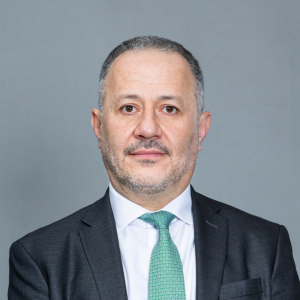
Dr. Mazen O. Hasna
Dr. Mazen O. Hasna (Senior Member, IEEE) holds a B.Sc. degree from Qatar University (1994), an M.Sc. from the University of Southern California (1998), and a Ph.D. from the University of Minnesota Twin Cities (2003), all in electrical engineering. With more than twenty years of academic experience, he excels in research, teaching, and educational leadership.
At Qatar University, Dr. Hasna held roles including Head of Electrical Engineering Department, Dean of College of Engineering, and VP/Chief Academic Officer. Throughout his tenure at Qatar University, he was a founding member of the Society of Qatari Engineers, IEEE Qatar section, and co-established the Qatar Mobility Innovation Center, advancing wireless communication at Qatar Science and Technology Park.
As a prolific researcher, he has published 240+ publications with more than 9000 citations. He was the first from Qatar to be included in Thomson Reutersâ highly cited list of researchers in 2015. His research focuses on wireless communication, including a project with the Ministry of Foreign Affairs to establish an affordable network connecting the Comoros Islands.
Dr. Hasna serves on senior committees like the Education Excellence Awardâs Board of Trustees and the Energy and Industry Qatarization Awards Advisory Committee. He represents Qatar on the Arabian Gulf Universityâs Board of Trustees since 2014.
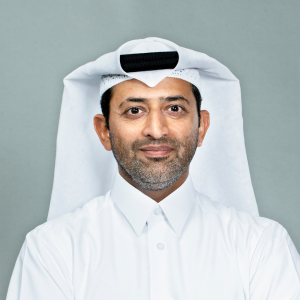
Dr. Rashid S. Al-Kuwari
Dr. Rashid Al-Kuwari has over 24 years of experience in the energy and industry sector, holding several leadership positions in the fields of engineering management, strategic planning, and human resources management. Dr. Rashid has been a member of the National Committee for Qualifications and Academic Accreditation in Qatar since 2022. He has been a member of the Board of Trustees of the Community College in Qatar since 2017. He serves as Chairman of the Industry Advisory Board for Mechanical Engineering Program at Texas A&M University in Qatar. Dr. Al Kuwari is a Chartered Quality Professional and a Chartered Manager and member of the Chartered Management Institute.
Roundtable â From goals to gains: embedding social impact and sustainability literacy into the curriculum

Scott G. Blair, PhD
Scott G. Blair, PhD, is Content Development Editor at Sulitest Impact, a social enterprise dedicated to assessing sustainability literacy in higher education. His recent roles include: Director of Accreditation and Quality Assurance at AIAASC; Vice President of CANIE-Europe; and Affiliate at the Gateway International Group, LLC. He served on the faculties of the University of New Haven, the Institut National des Sciences Politiques, the Institut National des Langues et Civilisations Orientales, and the American University of Paris. He was Resident Director at Boston College Paris and Director of Assessment & Sustainability at TEAN. His research appears in Frontiers, Routledge and Stylus publications and he is a regular speaker at educational conferences on learning outcomes assessment and international program design around sustainability literacy, ecopedagogy, and the UN Sustainable Development Goals. Blair holds a doctorate in history from the Sorbonne, an MA from Georgetown University, and a BA from Miami of Ohio.

Dr. Kerr Castle
As a Quality Enhancement and Standards Specialist at QAA, Kerr leads and supports a range of activities that aim to improve the quality and experience of UK higher education. Some of his key areas of focus are student transitions, education for sustainable development, and addressing awarding gaps, as well as enhancing teaching, learning and assessment more broadly. He also collaborates with internal and external stakeholders to develop and implement solutions that enhance the student learning experience and outcomes.
Design thinking workshop â Academic integrity-artificial intelligence nexus
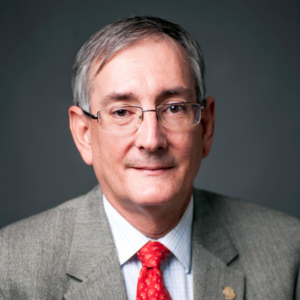
Associate Professor Fernando PadrĂł, PhD
Dr. PadrĂł is Associate Professor (Pathways) and Chair of the Academic Board at the University of Southern Queensland. His primary research area is quality assurance in higher education and quality in learning and teaching, presently serving as series editor of Handbook on University Development and Administration for Springer. He has experience as an external examiner for different accrediting bodies in the USA and the Malcolm Baldrige National Quality Award. He also is a Senior Member of the American Society for Quality and served as Chair of the Education Committee and as Chair of the E.L. Grant Medal Selection Panel.
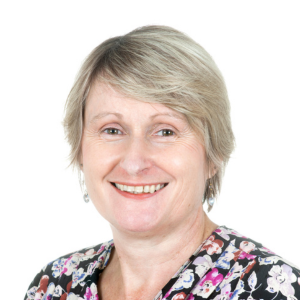
Professor Karen Trimmer
Professor Karen Trimmer focus is leadership for community capacity building, through research that impacts on education, social justice, policy and governance through professional development and empowerment of leaders in education organisations and communities. In previous positions she conducted reviews evaluating outcomes of government initiatives, including small- and large-scale studies in education, resulting in research reports utilised for policy development in state and national departments. At the University of Southern Queensland, she held leadership roles including Postgraduate Program CoordinatorâEducation, Assistant Dean Staffing, A/Head of School and A/Head of College for Indigenous Studies, Education and Research. She currently works within the School of Education to develop leadership in practice, with postgraduate students, and in assessment of quality in higher education acting as Chair and panel member of Quality Assurance Review Panels for Papua New Guinea Department of Higher Education, Research, Science and Technology and the Samoan Qualifications Authority.
Design-thinking workshop â Quality Nursing Education: Linking the Curriculum to Program Assessment

Nell Ard, PhD, RN, CNE, ANEF
Dr. Nell Ard is the Chief Accreditation Officer of the Accreditation Commission for Education in Nursing (ACEN). Dr. Ard has been in nursing education for 36 years working in a number of nursing programs at various levels of nursing. Her passion as always been related to curriculum and providing quality nursing education. She has been engaged in the nursing accreditation process for 20 years beginning as a peer evaluator, team chair, Evaluation Review Panel member, and ACEN Staff member. She has extensive presentations and publications related to nursing education and nursing accreditation. She participated in the development of the last three sets of Standards and Criteria utilized by the ACEN.

Keri Nunn-Ellison, EdD, MSN/Ed, RN, CNE
Dr. Keri Nunn-Ellison is the Senior Director of the Accreditation Commission for Education in Nursing (ACEN). Dr. Nunn-Ellison is dedicated to quality teaching and learning and has focused her career on course-, program-, and college-level outcomes assessment; her curriculum vitae includes professional faculty development presentations and publications on these topics. She participated on the Standards review team contributing to the 2017 Standards and Criteria and co-chaired the team contributing to 2023 Standards 4 Curriculum and Standard 5 Outcomes. Prior to joining the ACEN in 2016, she championed quality assessment practices in her roles as Divisional Assessment Coordinator for Health Sciences at Sinclair Community College and chair of the college-wide Assessment Committee. She served two terms on the Education Advisory Board for the Ohio Board of Nursing and was an active volunteer for the ACEN as a peer evaluator with experience as a team chair and participation on the Evaluation Review Panel.
DAY 3 | 12th of June
Keynote â Keeping tertiary education functioning and improving in conflict-affected areas: resilience and development

Francesc PedrĂł
Francesc PedrĂł is since May 2019 the Director of the UNESCO Institute for Higher Education in Latin America and the Caribbean. He joined UNESCOâs education sector in Paris (France) in 2010, where he led the team of education policy, providing technical assistance to UNESCO Member States by reviewing their normative frameworks and lifelong education policies upon request to ensure alignment with SDG 4-Education 2030, and contributing to knowledge dissemination through international comparative analyses. From 2005 to 2011 he worked at the OECD Centre for Educational Research and Innovation (CERI). He is a professor of public policies in education at the Pompeu Fabra University (Barcelona).
Session 3 keynote â Civic engagement as a public good: The role of quality assurance in nurturing active citizenship

Prof. Kevin Kinser
Kevin Kinser is Professor and Senior Scientist in the Center for the Study of Higher Education, Pennsylvania State University, USA. A graduate of Columbia Universityâs Teachers College (New York), Kinser studies non-traditional and alternative higher education, particularly the public policies and organizational structures in higher education systems world-wide. Kinser is co-founder of the Cross-Border Education Research Team (C-BERT) which investigates the scope and impact of international branch campuses worldwide. Kinser is the author or editor of five books and more than 70 articles, chapters, and scholarly reports, and he is regularly invited to present his research at conferences in the United States and abroad. Because of his research, Kinser is regularly sought out by national and international media outlets for commentary on quality assurance, for-profit and international higher education. His most recent book is Accreditation on the edge: Challenging Quality Assurance in Higher Education (2018, Johns Hopkins Press).
Design-thinking workshop â How can quality assurance agencies promote civic engagement to have a greater impact on society?

Sophie Guillet
Sophie Guillet works at HcĂ©res in France, in the Department for European and International Affairs, where she is head of the agency cooperation unit. She represents HcĂ©res in European and international networks and events. Sophie co-chairs the ENQA working group on quality assurance of research and represents France on quality assurance matters in the Bologna Follow-up Group as well as in bilateral cooperation with counterpart agencies. She gained experience in quality assurance while working on international projects as a higher education consultant for UNESCOâs International Institute for Educational Planning and for the World Bank. Sophie has a background in international social and public policy and is an alumna of the London School of Economics and Political Science (UK) and UniversitĂ© PSL (France).

Amélie Bensimon
Amélie Bensimon joined Hcéres Department for European and International Affairs in 2023. Prior to Hcéres, she has worked in multiple Higher Education Institutions in student mobility, programme management and internationalisation. Today, she contributes to the animation of Hcéres network of partner agencies, coordinates international delegations and represents Hcéres in cooperation projects in Europe and Latin America. As part of the cooperation unit, she is also involved in developing international quality assurance culture within the agency. Amélie has graduated from the Paris Institute of Political Sciences (Sciences Po) and Sorbonne University.
Design-thinking workshop â From INQAAHE GGP to ISGs: How HEEACT Translates International Goals into Domestic Higher Education Institutionsâ Practical Actions

Prof. Dr. Chia-Yu Chang
Dr. Chia-Yu Chang is a professor at National Taipei University of Technology in Taiwan. She received her Ph.D. in education with a specialization in curriculum and instruction. She participates in the development of many education policies for secondary and post-secondary education in Taiwan, especially in the field of vocational education.
She also was a visiting scholar at the University of Wisconsin-Madison in the United States as well as a guest researcher at the Graduate School of Education, Tohoku University, Japan. And since August 2023, she serves as the director of quality assurance and projects office of the Higher Education Evaluation and Accreditation Council (HEEACT).

Prof. Dr. Angela Yung-Chi Hou
Angela Yung-chi Hou, is Professor of Higher Education at College of Education, National Chengchi University, Taiwan. In 2022, she was elected as President of Chinese Taipei Comparative Education Society. She served as Executive Director of Higher Education Evaluation & Accreditation Council of Taiwan (HEEACT) from 2016 to 2021. She has been actively committed to quality assurance practices and international research for more than 15 years, including serving as Vice President & Board member of International Network of Quality Assurance in Higher Education (INQAAHE), Vice President & Board member of Asia Pacific Quality Network (APQN). She is recognized as the top 5 researcher in field of quality assurance of higher education worldwide according to SCOPUS.
In 2023, she was granted âOutstanding Research Awardâ by National Science and Technology of Taiwan and âExcellent Research Award âat National Chengchi University. In 2024, She was awarded the Best Researcher and Teacher by National Chengchi University.

Dr. Jackson Chun-Chi Chih
Dr. Jackson, Chih Chun-Chi is Research Fellow and Director of Evaluation and Training Division in Higher Education and Accreditation Council of Taiwan (HEEACT). Dr. Chih Chun-Chi received his doctorate in education from National Taiwan Normal University in 2007, specializing in the areas of family education and higher education evaluation. His fields of study cover family education, higher education evaluation policies, higher education evaluation, and evaluator training. He has taught family life education, and family resource management at National Taiwan Normal University, Shih Chien University, and Open University. He has been actively devoted to higher education evaluation since 2007.
Roundtable â Promoting Civic Engagement in Higher Education via the Assessment and Accreditation of Tertiary Institutions

Prof. Dr. Ganesan Kannabiran
Prof. Ganesan Kannabiran, Director of NAAC was a senior Professor of Information Systems at the National Institute of Technology, Tiruchirappalli India with over 30 years of experience including key roles as Dean of Research & Consultancy and Director in-charge. He has also served as the Director of Indian Institute of Information Technology Sri City India and made significant contributions including implementation of National Education Policy 2020 by incorporating skill development, holistic education, inclusive education, credit transfer, promoting innovation & entrepreneurship, societal engagements by adopting neighbouring villages and industry engagement at multiple levels.

Dr. Vinita Sahu
Dr. Vinita Sahu, currently an Assistant Adviser at NAAC, working in the field of higher education and quality assurance. Apart from overseeing assessment and accreditation of HEIs, her responsibilities include data validation, conducting awareness programs, and quality assurance initiatives. Holding a Doctorate in Chemistry, she has authored nearly 40 papers in reputed international and national journals, contributing significantly to academic and research domains. Dr. Sahu is recognized as an expert in NAACâs Assessment and Accreditation process, having spoken at various platforms. She has worked as an INSA (Indian National Science Academy) fellow in the Indian institute of science under teachers category. She holds prestigious fellowships from INSA and CSIR (Council of Scientific & Industrial Research). Her exemplary contributions have earned her accolades such as the âBest Science Research Awardâ from MPCST (Madhya Pradesh Council of Science and Technology), Academic Excellence Certificate, Shakuntala Bhondave Award, and CSIR Fellowship. A life member of OWSD (Organization for Women in Science for the Developing World) and ISCA (Indian Science Congress Association (ISCA)), Dr. Sahu has served as a Section Editor and Reviewer for esteemed international journals, including Medicinal Chemistry Research (Springer Link), Elsevier, and Taylor and Francis.
Roundtable â Ensuring inclusive and diverse teaching approaches within quality
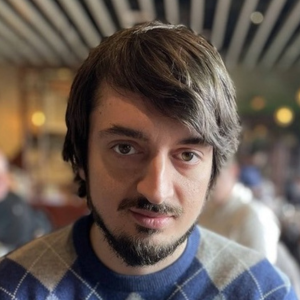
Radu-Ioan Ciobanu
Radu-Ioan Ciobanu is an Associate Professor and researcher at the Computer Science department of the Faculty of Automatic Control and Computers at the National University of Science and Technology POLITEHNICA Bucharest. He obtained his PhD from the same faculty in 2016. His research interests include pervasive and mobile networks, DTNs, opportunistic networks, cloud computing, federated learning, etc. His research has led to the publishing of numerous papers and articles at important scientific journals (such as Pervasive and Mobile Computing, Journal of Network and Computer Applications, Transactions on Emerging Telecommunications Technologies, Ad Hoc Networks) and conferences (IEEE GLOBECOM, ICC, IM, WoWMoM, PerCom etc.). He is involved in several national and international research projects, both as member and as coordinator.
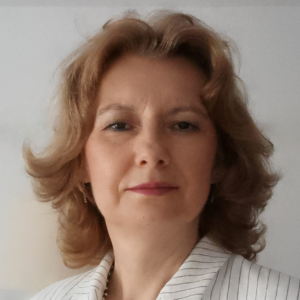
Monica DRÄGOICEA
Monica is a Full Professor in Systems Engineering at the Faculty of Automatic Control and Computers at the National University of Science and Technology Politehnica Bucharest (Politehnica Bucharest). Her academic journey began with a degree in Electrical Engineering â Automatic Control from UPB in 1993, followed by a masterâs degree in Engineering Management from Technische UniversitĂ€t Wien, Austria, and the School of Business Administration, Oakland University, Rochester, MI, USA in 1999. She completed my doctorate in Automatic Control from UPB in 2000. Over the past 25 years, she has been involved in theoretical and experimental work within software and systems engineering. Her research spans diverse topics, including artificial intelligence, neural networks, and mobile robotics, with a focus on intelligent control systems for mobile robotics (1993 â 2006). Subsequently, her interests evolved to encompass real-time systems, model-driven development, and object-oriented analysis and design (2007 â 2010). Since 2010, she has been deeply engaged in service systems engineering, digital design of services, and computational intelligence. She a member of the IEEE Systems, Man, and Cybernetics Society, the International Society of Service Innovation Professionals (ISSIP), the Robotics Society of Romania (SRR), and INSTICC, the Institute for Systems and Technologies of Information, Control and Communication.
Presently, she serves as the Head and founder of the Smart Cities and Robotics iLab at the Faculty of Automation and Computers at Politehnica Bucharest. Additionally, she holds the role of Academic Coordinator for BIS â Business Intelligence Specialist, a Postgraduate Continuing Professional Development Program developed in collaboration with SAS Institute. Moreover, she is the Academic Coordinator of the newly established masterâs program in Advanced Analytics for Business, forged through a partnership with SAS Institute. These innovative study and research directions at Politehnica Bucharest are designed to integrate powerful analytics tools with smart service design strategies, equipping their students with essential skills for future employment opportunities in our evolving society.
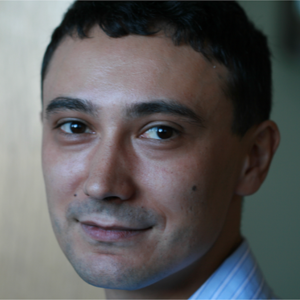
Ciprian DOBRE
Ciprian Dobre leads the MobyLab group at POLITEHNICA Bucharest and has scientific and scholarly contributions on Data Science, Mobile and Ubiquitous Computing, Internet of Things, Wireless Networks, Modeling / Simulation, Mobile and Urban Smart Technologies. He was awarded the Award âGheorghe Cartianuâ of the Romanian Science Academy in 2016 and as lead developer of MonALISA he was Fellow for California Institute of Technology. He was awarded an Oracle PhD fellowship during his doctoral studies. His results received one IBM Faculty Award, two CENIC Awards (for worldwide records in high-speed networking demonstrated at SuperComputing), and four Best Paper Awards. His results were published in over 100 books, chapters in edited books, articles in major international peer-reviewed journal, and well-established international conferences and workshops.
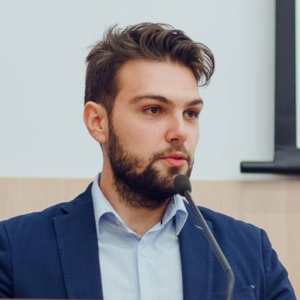
PetriÈor L. ÈUCÄ
PetriÈor L. ÈUCÄ is the head of the Quality Assurance Department at the National University of Science and Technology Politehnica Bucharest and is a member of the permanent committee of engineering sciences at Romanian Agency for Quality Assurance in Higher Education (ARACIS). He held a two-year term as a member of the ARACIS Council and was president of the largest and most important student federation in Romania. In addition, he was an invited member of the Social Dialogue Commission of the Ministry of Education and invited to other structures of the ministry where the financing of higher education is discussed.
He is currently pursuing a Ph.D. with an emphasis on the digitization of higher education. He also acted as an expert or expert coordinator in several national and international projects focused on quality assurance and digitalisation of higher education. His significant contributions in the field underscore his commitment to improving and modernizing the higher education system.
Roundtable â Program Advisory Committees Supporting Ready, Informed and Engaged Students

Karen Belfer
Karen Belfer is the Executive Director of the OCQAS, she oversees the self-regulatory mechanisms for the public colleges in Ontario and is responsible for the operation of the Credentials Validation Service and the College Quality Assurance Audit Process.
Prior to joining the OCQAS, Karen spent seven years as the Dean of the Centre for Instructional Development and Applied Research at Vancouver Community College (VCC), a unit responsible for college wide instructional development, program review, curriculum development, educational technology, and applied research. She has worked as an Educational Consultant managing projects internationally and in various Canadian institutions. Her focus has been the design, implementation, and evaluation of quality assurance mechanisms to enhance the learning process.
Karen did her undergraduate work in Informatics, her Masters in Adult Education, and her Ph.D. in Educational Research at the Anahuac University in Mexico, where she taught for 10 years.

Sylvie Mainville
Sylvie is the Manager of Quality Assurance for the Ontario College Quality Assurance Service (OCQAS). She works with the Executive Director to ensure ongoing consistency of the OCQAS processes with international best practices in quality assurance for and within Ontarioâs Colleges.
Sylvie has taught at every age point, form pre-school, to post-secondary and even for the Canadian Armed Forces. Prior to joining OCQAS, Sylvie worked at Cambrian College where she established and actioned a college level audit process to review third-party educational institutions (for international students). More recently, she has co-developed and co-led a successful pilot process for auditing international standards of education in the Ontario college system. She also considers herself a vocational learning outcomes geek (and received a t-shirt to prove it) and is always happy to chat about learning outcomes. Sylvie studied in psychology and linguistics and holds an M.Ed. Degree from Nipissing University.
Session 4 keynote â New approaches to transform learning, new ways to rethink teaching âinâ and âoutâ higher education â Qualifying lifelong Learning: fostering opportunities for all ages

Romita IUCU, Prof.univ.dr.
Professor Romita IUCU is the President of the Board of Trustees at the University of Bucharest and a professor of higher education at the Department of Educational Sciences. With an important experience in international cooperation in the field of education, professor Iucu is the Coordinator of UNICA EduLAB Group, the Co-Chair of the FOREU European Degree Subgroup of European Universities, and a member of the European University Association (EUA) Learning & Teaching (L&T) Steering Committee. He has been appointed as a Magna Charta Observatory Ambassador from 2022. Professor Iucu held several university-management positions (former Acting Rector of the University of Bucharest, and Vice-Rector for Academic Affairs for more than 16 years), with an important role in designing, managing, and validating higher education and adult education policies at different levels. He is a former President of ENTEP (European Network on Teacher Education Policies) and was the nationalâs representative in the BFUG.
Roundtable â Access, transfer and progression for learners and the role of quality assurance agencies

Dr. Bryan Maguire
Dr. Bryan Maguire is Director of Integration at Quality and Qualifications Ireland (QQI). He has worked in QQI and its predecessor agency HETAC since 2005. Previously he was Head of School of Creative Technologies at DĂșn Laoghaire Institute of Art, Design and Technology, Ireland and lectured in Bangor University, Wales from 1991-98. Dr. Maguire holds a bachelor degree in psychology from University College, Dublin and a PhD from the University of California, San Francisco. An internationally recognized expert on qualifications frameworks and quality assurance he has served numerous advisory and review groups, including the European Qualifications Framework advisory group and the Bologna Thematic Peer Group on quality assurance.
Roundtable â Aligning Upskilling and Reskilling Training Programmes to the Needs of the Industry and Staff

Dr. Rabieâe Kayid Al-Rashdi.
Dr. Rabieâe Al Rashdi has an extensive healthcare professional background. Graduated as a general nurse and later specialized in Accident and Emergency, as well as Intensive Care. All this was in the United Kingdom (UK). Dr. Rabieâe has a masterâs degree in nursing and a Doctor of Philosophy (PhD) from Napier University, Edinburgh (Scotland), with a focus on Human Resources Development and Management. He also holds a post doctorate diploma in strategic management and leadership from Oxford Business College, UK, as well as various leadership and management courses.
Currently, Dr Rabieâe works as a freelance Consultant with a main focus on quality, accreditation and academia in both healthcare and higher education institutions. In particular, Dr Rabieâe currently works on part-time bases with OAAAQA as a Review Director and External Reviewer for the Oman Qualification Framework, as well institutional and programmatic accreditation. He is also a visiting lecturer in Sultan Qaboos University in Oman, as well as a surveyor with Accreditation Canada and a quality reviewer/ director with KSA and Bahrain.
Roundtable â Bridging HEIs and the Society for promoting the Lifelong Learning: A Case in Japan

Akinori Matsuzaka
Associate Director of the Research and Planning Division, Japan University Accreditation Association, Japan.
After joining the JUAA in 2007, he worked on institutional accreditation, program accreditation, and planning new accreditation procedures. He is also a researcher at the JUAA Research Institute for Quality Assurance of Higher Education (RIQAHE), engaged in several research projects.

Miharu Kato
Assistant Director of the Research and Planning Division, Japan University Accreditation Association, Japan.
She is engaged in planning the accreditation procedures, publishing the journal, and some research activities as a staff.
Roundtable â External quality assurance mechanisms to support the quality of blended and distance learning in tertiary education to foster learning opportunities for individuals of all ages. The Romanian approach.
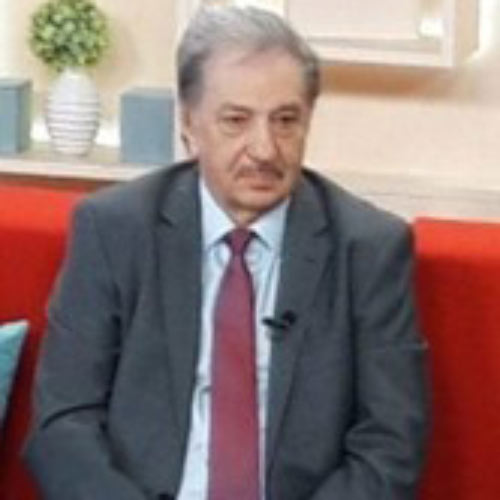
Iordan Petrescu â Professor CEng, PhD
Iordan Petrescu is a full professor at Technical University of Civil Engineering in Bucharest, holding a PhD in Civil Engineering with a specialization in bridges, where he has made remarkable contributions to the field, including developing innovative bridge design methods. He has extensive experience in distance education, dating back to 1991 when he implemented the first course for training road technicians. Serving as president, with some interruptions, he led and coordinated the activities of the Commission for Distance Education and Part Time Learning within the Romanian Agency for Quality Assurance in Higher Education (ARACIS), from 2000 to the present. From 2013, for 9 years, he served as president of ARACIS, where he developed and implemented specific methodologies and standards for quality assurance in higher education and distance education. He was responsible for and coordinated a significant number of projects related to the improving public policies in higher education and enhancing the quality of regulations by updating quality standards.
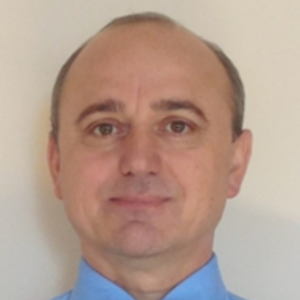
Prof. Dr. Mircea NEAGOE
Mircea Neagoe is full professor at Transilvania University of Brasov and member of the Renewable Energy Systems and Recycling R&D Center within the Faculty of Product Design and Environment. He has over 20 years of experience on distance and online learning, with a special focus on e-learning platforms. He managed for 10 years (2002-2012) the Distance Learning Department in Transilvania University of Brasov and since 2007 he is member of the Permanent Speciality Expertsâ Commission of ARACIS for distance learning (DL) and part-time learning (PTL) education. He participated in external quality evaluation of over 10 higher education institutions in Romania, over 200 bachelor & master study distance and part-time learning programs, over 10 full-time study programs. He contributed to the elaboration of the specific DL&PTL quality evaluation standards within ARACIS, and participated in various project on quality assessment and accreditation in higher education (Qualitas, Qafin, etc.).
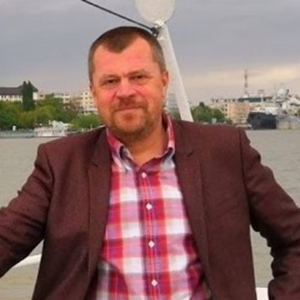
Alexandru CHIÈ, PhD. Assoc. Prof.
Alexandru CHIÈ, Assoc.Prof.PhD. within the BabeÈ-Bolyai University, Faculty of Economic Sciences and Business Administration, has an important experience in the field of quality assurance, in the field of higher education institutions, being since 2007 also an expert evaluator within ARACIS, a permanent evaluator within commission 13 ID/IFR, from the same quality assurance agency. He managed distance education within BabeÈ-Bolyai University in Cluj-Napoca. He participated as an expert in several projects financed by European funds, an example being QAFIN, which aimed, among other things, to implement the external evaluation methodology of study programmes and higher education institutions in RomĂąnia, including distance education and with part time/low frequency. His experience within UBB and ARACIS was valued especially in the field of distance education and with reduced frequency through the evaluations carried out, but also participation in the development of regulations related to quality assurance within his own university, including at the national level within ARACIS.
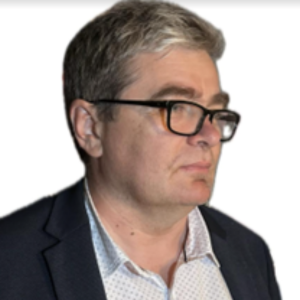
Florin MIHAI, PhD. Professor
Florin MIHAI is the Director of the Management Information Systems Department at the Bucharest University of Economic Studies and teaches courses in: Financial and Accounting Databases, ERP Systems, and Software Robots for Business Process Automation (RPA). Since 2022, he has been a member of the Council of the Romanian Agency for Quality Assurance in Higher Education (ARACIS). Between 2010 and 2021, he was a member of the ARACIS Standing Expert Commission on Distance Learning and Part-Time Education. From 2008 to 2013, he was the coordinator of the development team for the university management information system at the Bucharest Academy of Economic Studies (he is currently part of the maintenance team). He has participated in several development teams for IT platforms in education, finance, accounting, and others. Regarding his research activities, he has primarily focused on educational IT platforms, ERP systems, and ensuring sustainability through digitalization.
VENUE
The event will take place at the National University of Science and Technology Politehnica Bucharest (UNSTPB), Romania (Bucharest, 313 Splaiul Independentei, district 6, postal code 060042) hosted by the Romanian Agency for Quality Assurance in Higher Education (ARACIS).
UNSTPB was founded in 1818 and is the largest and most prestigious technical university in Romania. At present, UNSTB conducts educational activities in engineering fields, organized in 15 faculties, for over 95 bachelor programs and 180 master programs.
ACCOMMODATION
The following hotels are situated within walking distance from the forum venue:
Also, participants can choose to stay at a hotel in the city center, located at around 5 km distance from the forum venue, such as:
VISA
You can find out how to get a visa on the Romanian Ministry of Foreign Affairs website and on the E-VISA
website, where online applications for visa are possible.
In case you need a letter of invitation for visa application purposes, please contact us at: inqaaheforum2024@aracis.ro
SPONSORS
Organizers
Supporters
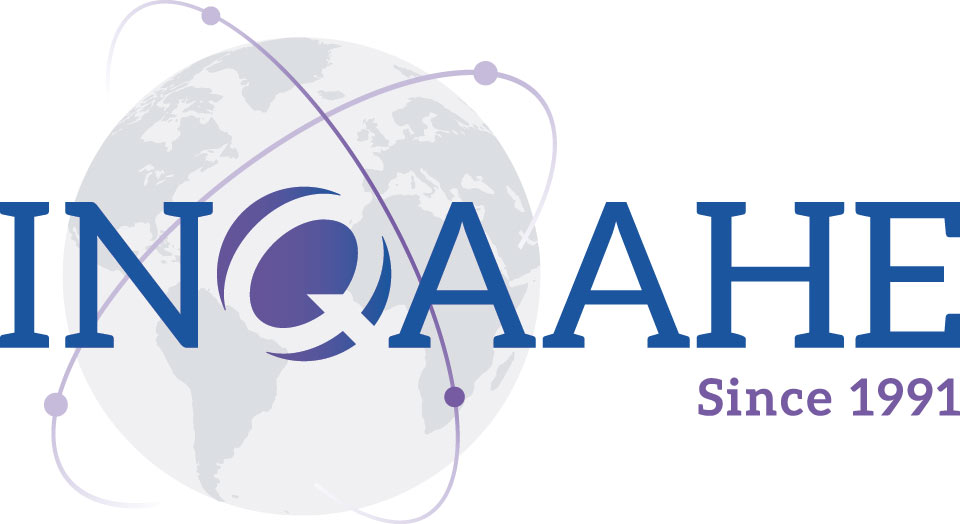
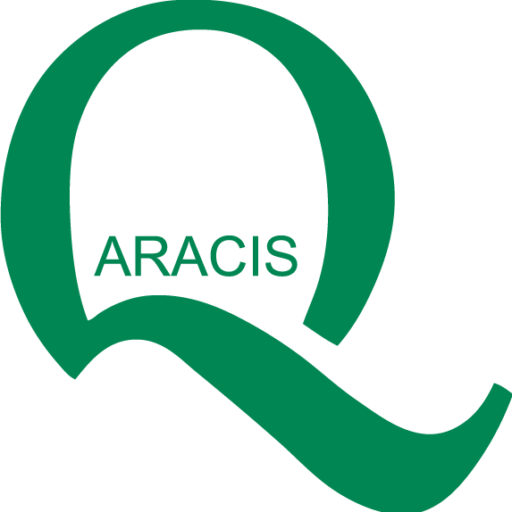
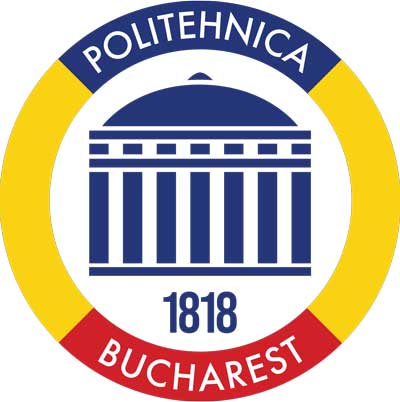
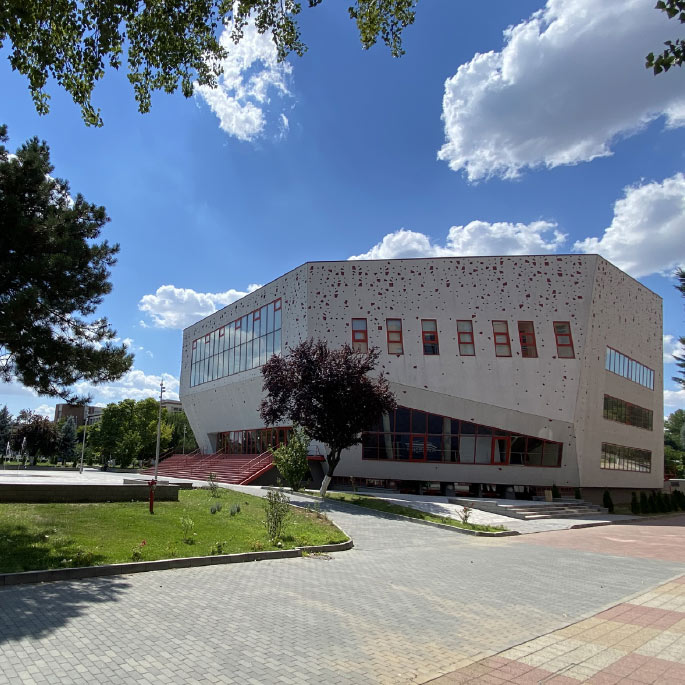


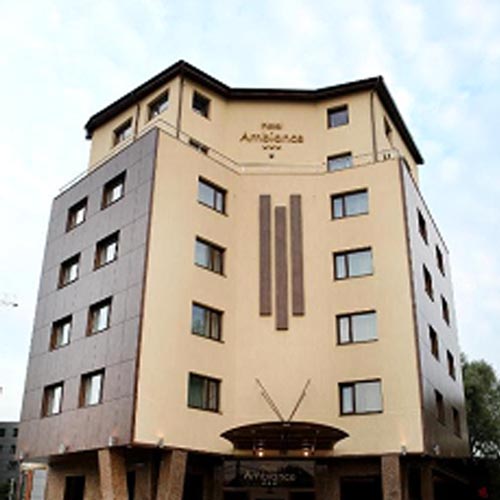




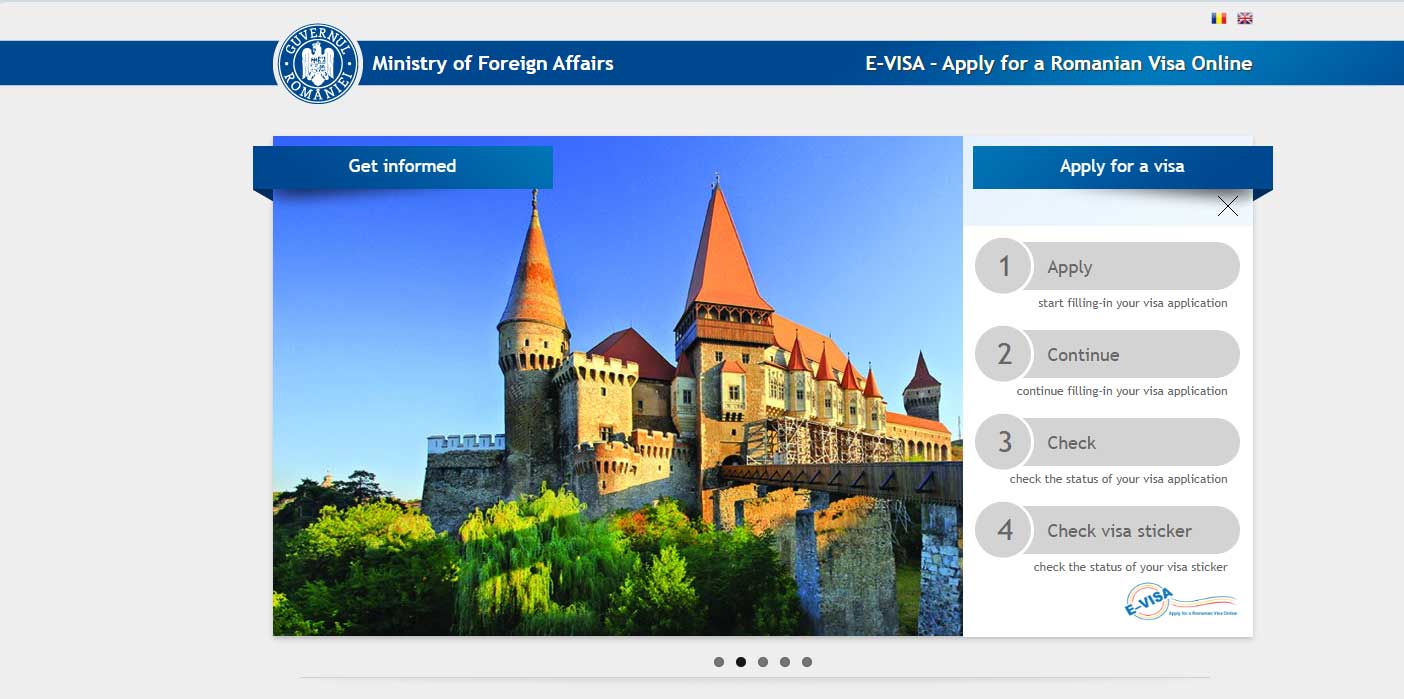
 Pok.tech
Pok.tech – SCC Erbasu
– SCC Erbasu Â
 



